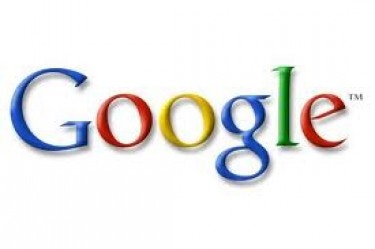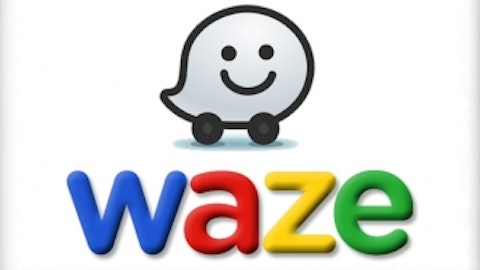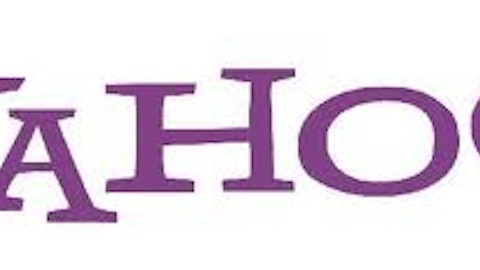People evaluating Apple Inc. (NASDAQ:AAPL)‘s new iTunes Radio service often talk about algorithms. Despite the term’s relative meaninglessness to most outside of the tech world, many believe that either Apple Inc. (NASDAQ:AAPL), Pandora Media Inc (NYSE:P), or Google Inc (NASDAQ:GOOG)‘s superior algorithms — the formulas that guess which songs you like — will help one company or the other win the day.
Of course, algorithms are important. A service that does a particularly poor job recommending music is unlikely to garner listeners. But algorithms are only important up to a point. As long as the service is good enough, people will listen.
Open the box
Pandora Media Inc (NYSE:P) is the indisputable king of music streaming services — at least for the moment. With over 150,000,000 users, it crushes the competition. Even Spotify, which has a slightly different model, can’t boast more than 25 million. Those users generate feedback that helps improve the service’s algo—oops, I mean, recommendations.
The company went public just about two years ago, and after shares jumped to an all-time high a month after the IPO, they’ve seen a long “V” of decline and then growth to come a lot closer to returning to that opening high. Apple’s WWDC 2013 did send the company’s shares down a bit, meaning they could be undervalued in the short-term.
So how will Pandora Media Inc (NYSE:P) fare in the medium- and long-term now that it’s facing competition from two of the world’s biggest tech companies? My guess is that we’ll see the decline of Pandora Media Inc (NYSE:P) over the next few years unless the company can innovate in a big way.
Pandora Media Inc (NYSE:P)’s dominance was mostly based on a lack of competition. It was an early entrant, provided both web- and mobile-based services, and gave listeners solid recommendations. With Google’s dominance on the web across multiple platforms, I believe they’ll begin to work their music offerings into more places. And of course, Apple Inc. (NASDAQ:AAPL)’s iTunes makes their iTunes Radio inherently integrated with every fresh MacBook that comes off the assembly line.
All-access pass
Google Inc (NASDAQ:GOOG)’s Play Music All Access has an awful name — that’s indisputable. But what does the new service bring to the table?
First of all, it’s paid. At $10 a month, it’s significantly cheaper than Pandora and Apple Inc. (NASDAQ:AAPL)’s offerings. Like Apple, All Access offers integration with your own music library, which the company already hosts for free as a part of Google Music. That’s a boon for anyone already invested in the company’s music offerings, and is likely to make the service that much more appealing.
However, not having a free streaming service is a significant obstacle to attracting new users. It’s the way Pandora Media Inc (NYSE:P), Spotify, and most other players build their audience. There is a free 30-day trial that will likely draw listeners, but without the ability to stream for free long-term, I suspect many will drop it.
Ultimately, I think Google Inc (NASDAQ:GOOG) doesn’t see All Access as a major revenue source — they just want to make back their licensing fees. Thus the service becomes more about rounding out Google Inc (NASDAQ:GOOG)’s offerings. For those with Android phones or tablets, Google Inc (NASDAQ:GOOG) is building out their complete package for all your music-streaming needs. And I think that makes Google a strong prospect in the long term.
The newest player
Apple Inc. (NASDAQ:AAPL) is crafting a similar strategy — although at $24.99 a year, iTunes Radio comes in at just over $2 a month. And for those who still find that a little rich, there is a free, ad-supported service not unlike Pandora’s.
Apple Inc. (NASDAQ:AAPL) has a number of built-in advantages in this market. With over a 500 million active iTunes users, it’s got a treasure trove of listening data from years of being the world’s biggest internet music service. It has hundreds of millions of iPhones that are already tightly integrated with iTunes. And 400 million of those iTunes users have credit cards in iTunes, meaning they are ready and willing to buy the stuff Apple spins. Of course, the same advantages could be said of Ping, Apple’s failed foray into the social networking space.
But selling music is what iTunes is all about, and iTunes Radio should be a huge boon to Apple in that regard. The company’s lack of fragmentation and strong upgrade numbers means it will have plenty of users updating their devices to iOS 7 when the time comes, and with it, plenty of listeners eager to check out iTunes Radio.
The bottom line
Although it’s been a strong contender and will continue to be in the short- to medium-term, I think Pandora is likely to see a decline as two companies who already entertain consumers in other realms make inroads with internet radio.
Google’s All Access is a strange beast, and may not generate the number of users Google Inc (NASDAQ:GOOG) is looking for. But the company’s made a strong push into internet music already, and All Access rounds out those offerings.
Apple Inc. (NASDAQ:AAPL)’s new iTunes Radio is set up to succeed, as long as the integration is as tight as was promised at WWDC. It’s another example of a more realistic Apple willing to keep up with the Joneses — or in this case, the Brins and Pages — and that should hearten concerned Apple investors.
The article Will Google and Apple Eat Pandora’s Lunch? originally appeared on Fool.com and is written by Steven Yenzer.
Steven Yenzer owns shares of Apple. The Motley Fool recommends Apple and Google. The Motley Fool owns shares of Apple and Google. Steven is a member of The Motley Fool Blog Network — entries represent the personal opinion of the blogger and are not formally edited.
Copyright © 1995 – 2013 The Motley Fool, LLC. All rights reserved. The Motley Fool has a disclosure policy.






